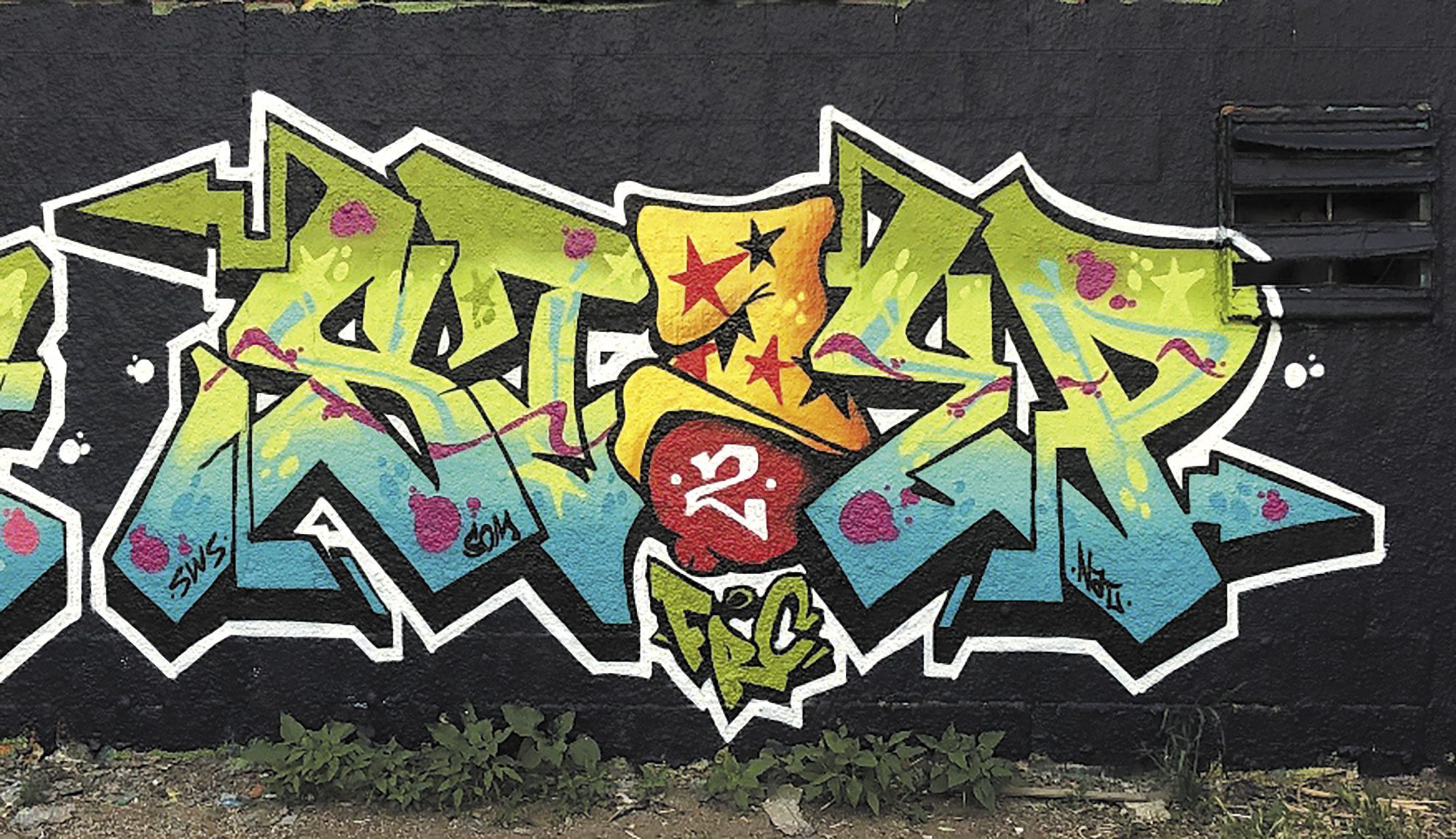
FOREVER KINGS
An Interview with Step2
By Jonny DeStefano
Published Issue 017, November 2022
With his music career behind him and his children all grown-up, Step2, creator of Denver’s powerful ethno-experimental, Mid East dance beats band, Men in Burka, has been able to put his artistic energy into his lifelong endeavor of “writing.” He caught up with me to break down his writing process and experiences, and to share his insight into the world of being a graff artist.
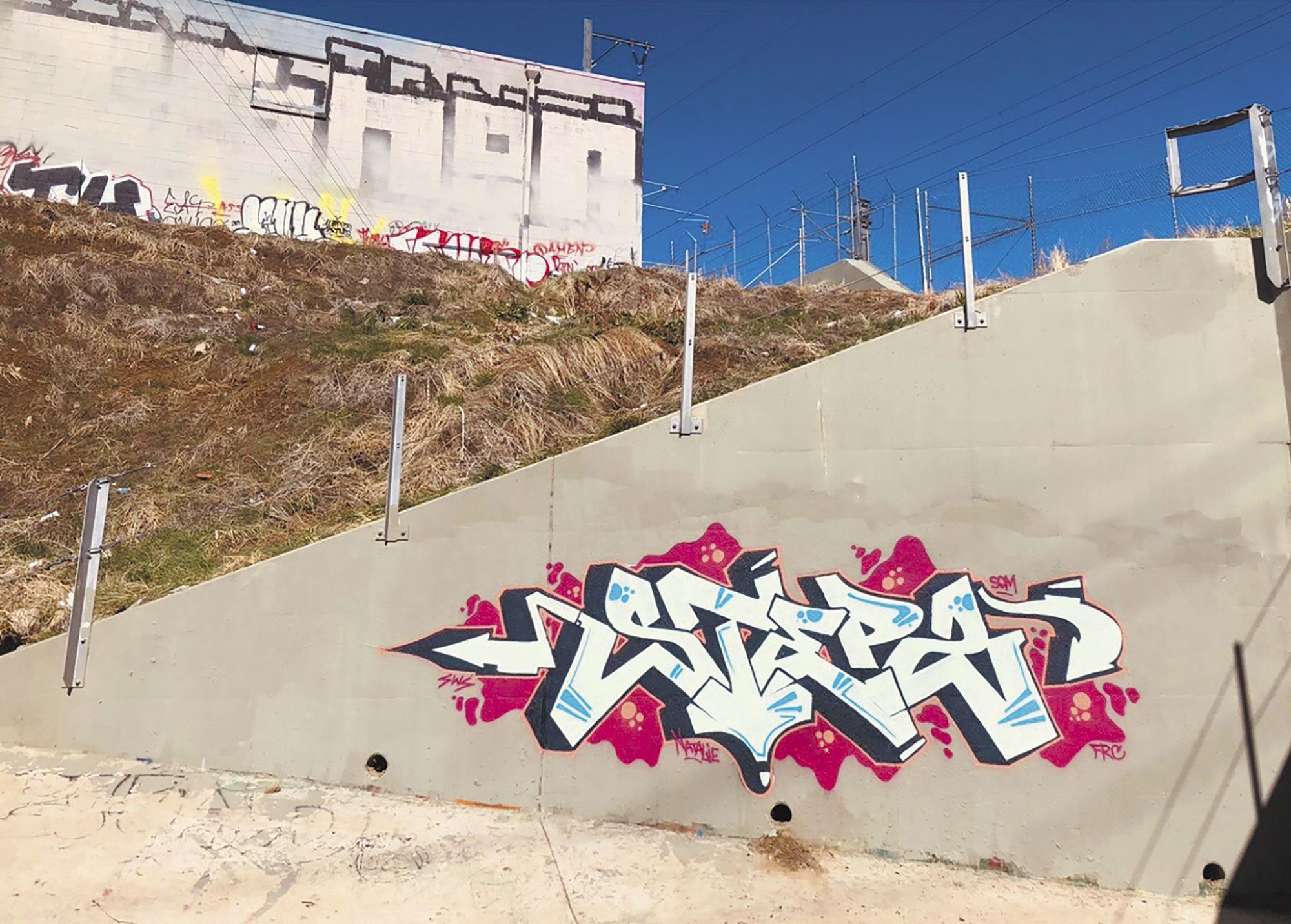
So now that music is in your rear-view mirror you have more time to hit the streets and do your — I’m not sure what you call it — tagging
or graffiti?
To me, what we do is called “writing.” Straight writing, like you’re writing on something. That’s how I learned it. Graffiti is a term given to us by people who didn’t do it. The “g word” as I call it. It has been accepted forever, it really has, but we called it writing because that’s what you’re doing — you’re tagging, you’re bombing, you’re doing throw-ups, piecing and productions. And honestly it should be called “style writing.” Graffiti has been around forever, but style writing is different, that shit started in the ‘60s and ‘70s, and those kids didn’t call that shit graffiti either, the cops told them they were doing graffiti. You know what I mean?
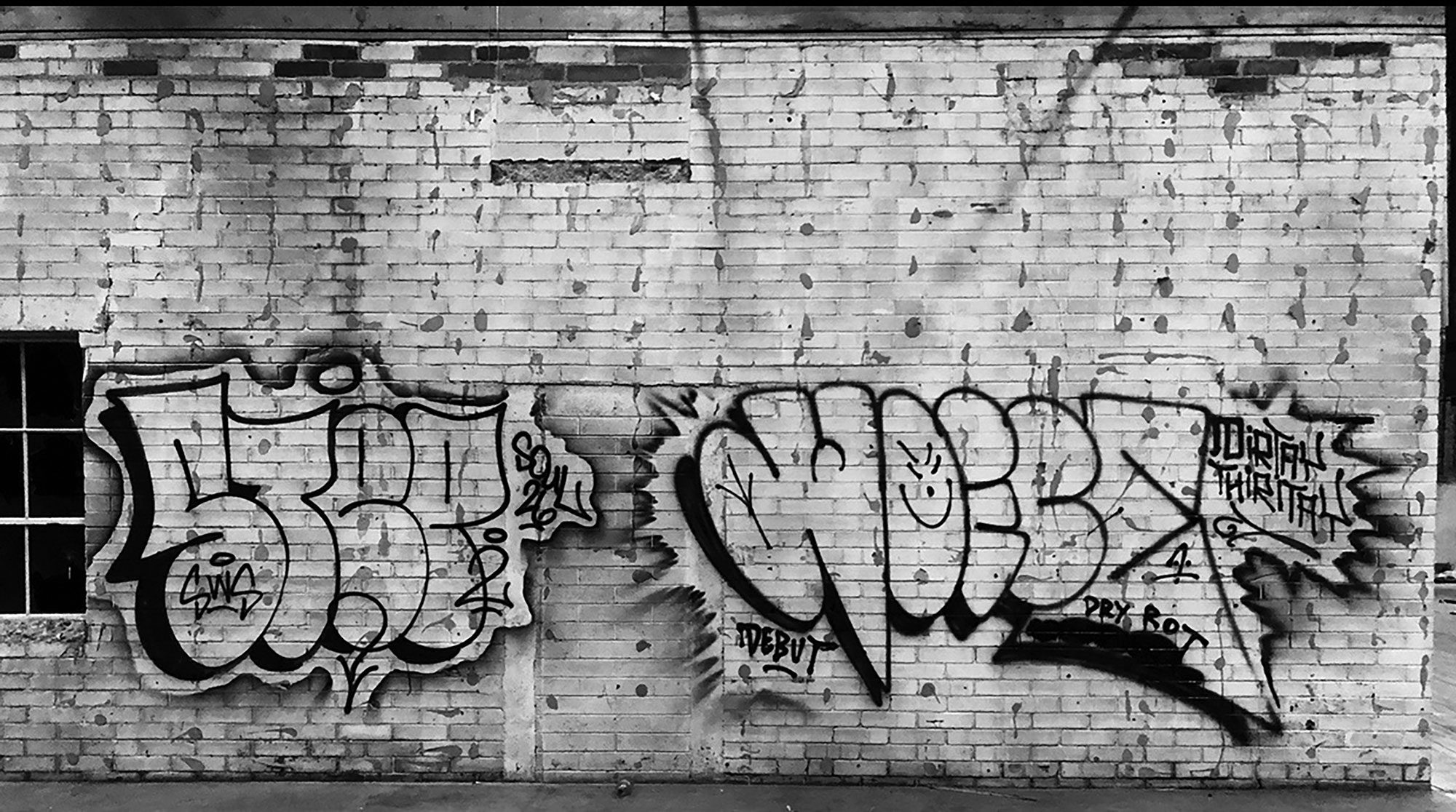
Definitely. When did you start writing?
I started in the summer of 1990. I grew up in Chicago but I moved to Florida when I was 13. And when I came back to Chicago in the summer when I was 15, my best friend Carlos, who I’ve known since preschool, was writing and all his friends were too, and I was like, What the fuck? I knew what it was, I just didn’t expect him to do it. So the first night we hung out when I moved back, he was like, “You’re going writing with us.” And that’s how I started. A week later I picked a name.
What was your name?
When I started my first name was Thief and just like every toy — a toy is when you first start and you don’t know what the hell you are doing — my first name didn’t stick. I wrote Thief for half the summer, maybe longer as we were getting up in the neighborhood on the North Side of Chicago. I was experiencing everything really fast. Like I said, these guys had already been writing for a year and there was no Be careful. These guys were bombing the streets, the train lines and we even started to battle a crew. It was crazy. Later that summer the guy who started our crew, Sinner, said to me, “Yo, you’re like a really nice dude. You’re not a thief, bro. I think you should write Saint because you are the opposite of me.” I thought, Damn, that’s a great name. So I picked that name up and I wrote that for the next five years.
So what happened next?
At the end of the summer I started writing, my mother moved to Denver and she called me and my sister and said, “You got to come out here, it’s like Chicago but smaller.” Literally my first day of school as a sophomore I moved to Denver. It was good timing too because in Chicago we were battling this crew that ended up being really big actually, and they were a gang and they were called AOK (All Out Kings) and we were toys and I’m glad I moved because I’m sure we would have fought and who knows what would have happened.
You would have had a Ron Burgundy street fight?
Completely. It would have been Anchorman 1 and 2. Because they don’t play out there. The All Out Kings were actually Latin Kings. And that’s the thing though, in the ‘80s and ‘90s a lot of gangbangers wrote but they kept that shit separate. It’s kind of cool. I mean, they would jump you and shit if you tagged in their neighborhood. But other than that their graff crew or gang didn’t spill into the graff.
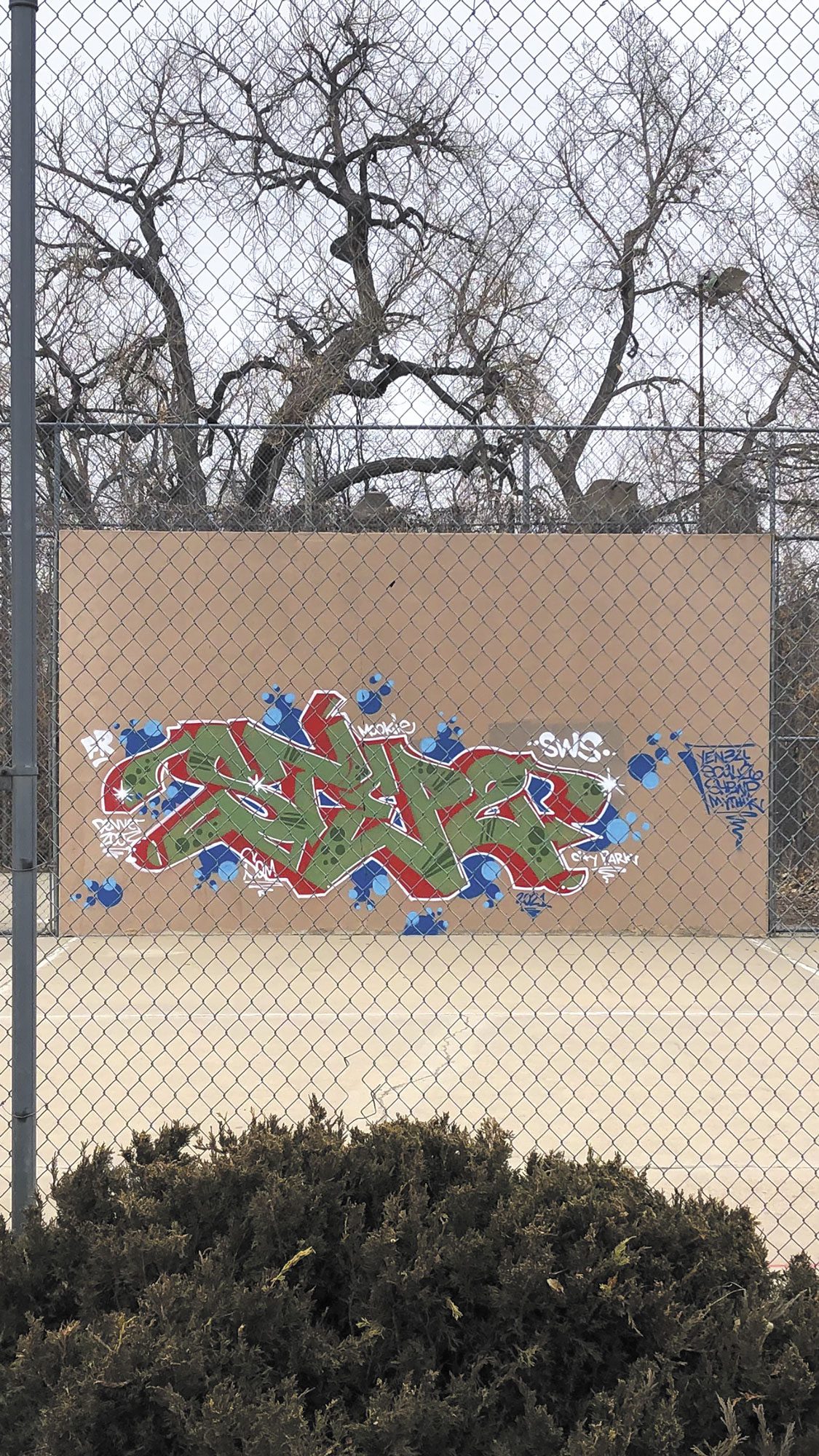
So you had rival crews but the cops were probably a problem too, right?
Oh yeah, for sure. Absolutely. You got to remember man, there are no legal walls. There was no street art or mural artists. There was no Colorado Crush. There was none of that in Chicago or Denver. You know, people hated graffiti back then. I remember distinctly back in ‘91 here in Denver — if it wasn’t the cops — people would chase you.
And you were Saint for five years in Denver?
Yes, and around ‘95 I stopped writing that name because I saw a Saint from New York who was an old schooler, from an old school crew, and I immediately knew I couldn’t write that anymore. So I stopped and started writing another name for like another 10 years.
And now, you even have a different name?
I do. It’s Step2 now. I kind of have three eras. From ‘95 to 2005 I wrote Ahmed which is my middle name. I wrote it Amed. I took the “h” out. I was in two crews by then. I was in a crew that I co-founded called FR which was a hip hop group and I was also in SWS by then. But around that time in 2005, I had kids and I took a hiatus. I then started to get into making music and during my making music time I wasn’t making any splash as far as the writing scene either. When the music stopped around 2015, I started to direct my energy back into writing. I started just writing my name Kam, but I put an “s” on it — KAMS. But that didn’t last very long because one day I was writing the letters ST, which used to be my abbreviation when I wrote Saint, and I thought, Well, what’s the next step, step 2. I thought that kind of sounds dope and it includes my Saint abbreviation. So I stumbled upon Step2. I think some of the best graffiti writers have words as names, like Splash or Fire or whatever, so Step2 is the first time I stumbled onto a word that disassociated me from who I am and that’s when I just ran with it.
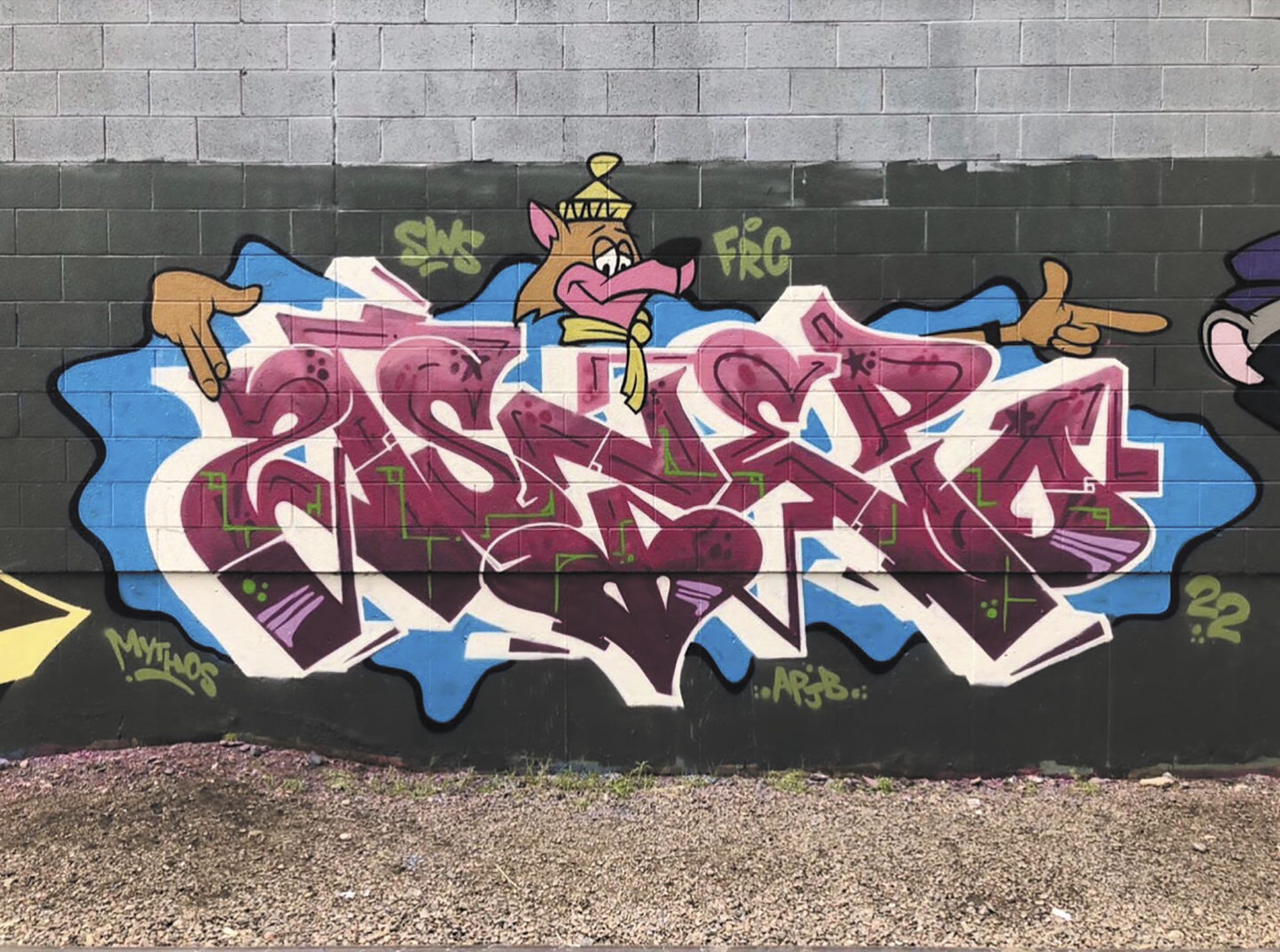
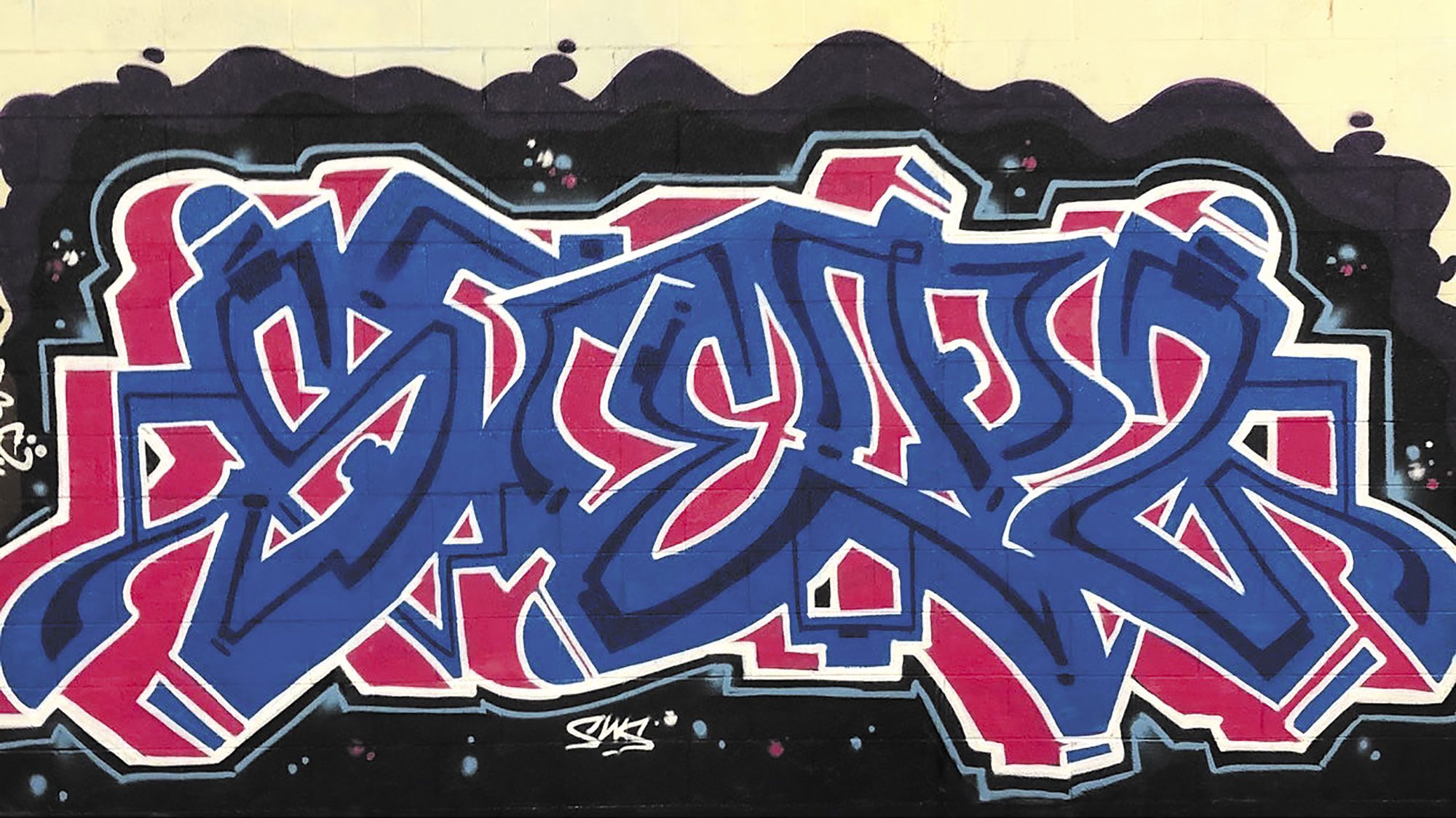
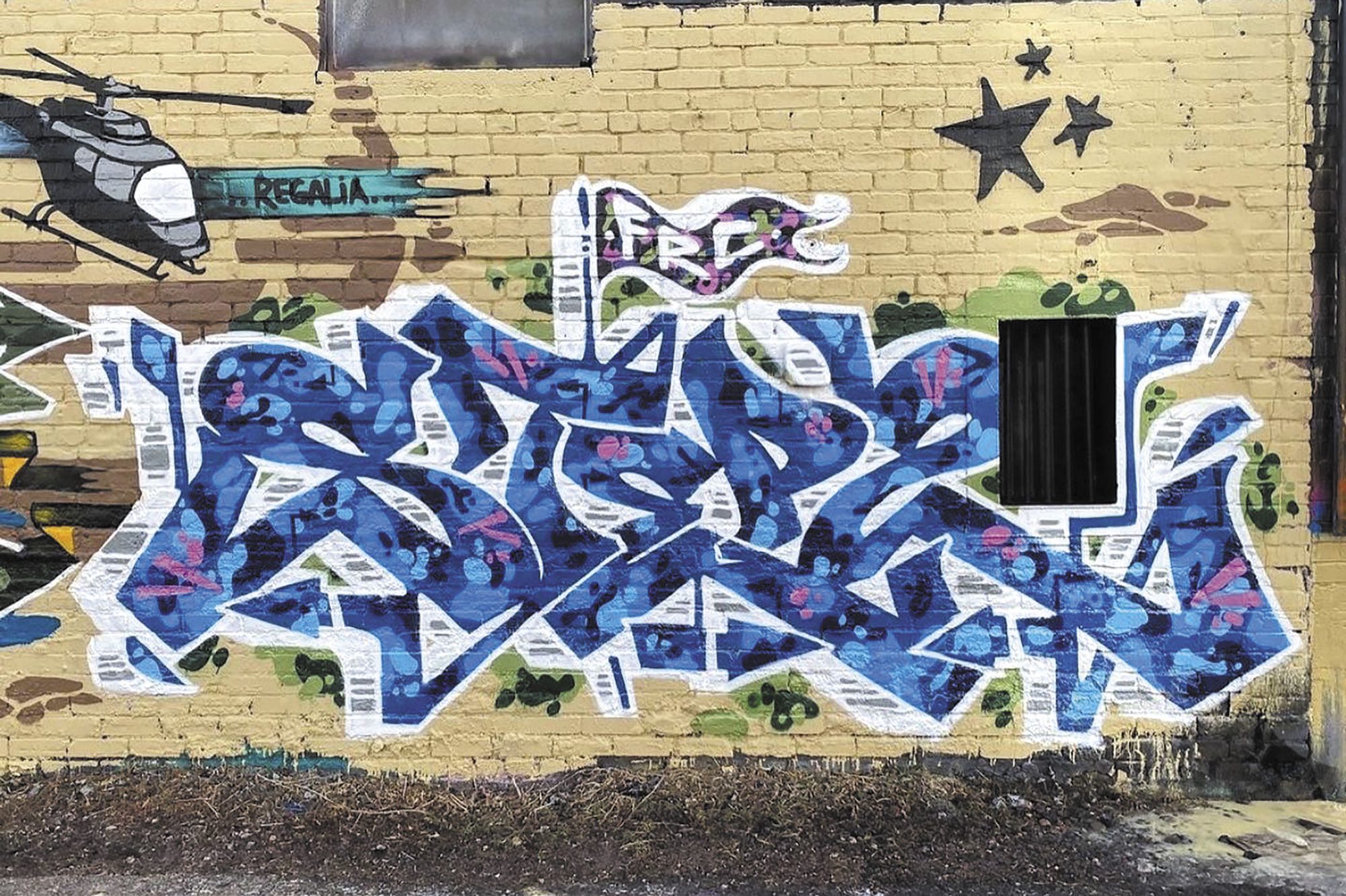
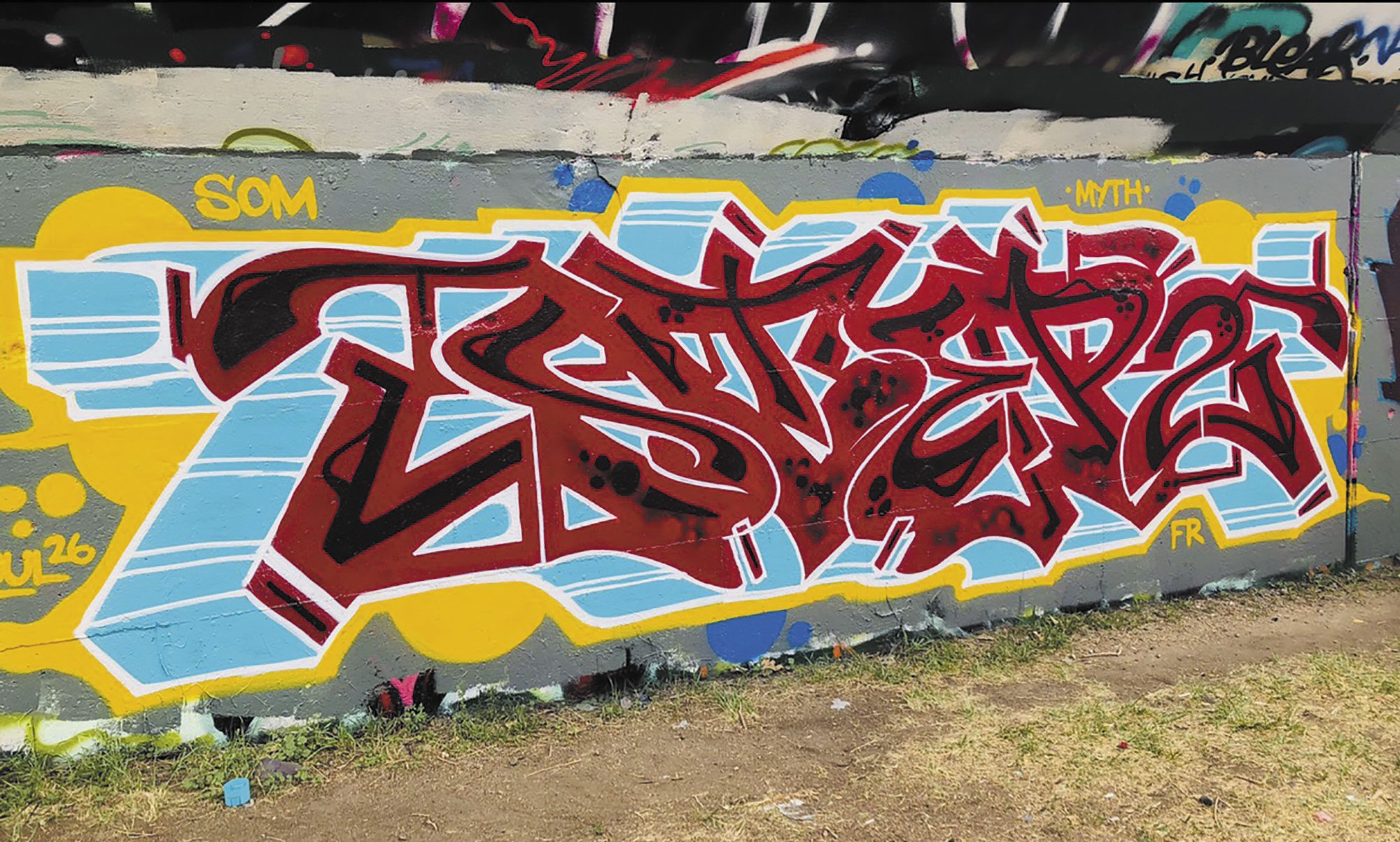

Tell me about the importance of having a crew?
When you’re on the streets you’ve got to have a crew, you have each other’s backs. A lot of people go solo too but a crew helps you evolve. Your crew inspires you and influences you. In a crew, you got a president and you got veterans — people who have already done it. That’s your biggest advantage, learning how to do the right things, the unwritten rules, not making you a toy anymore.
Is respect an unwritten rule?
It is but it isn’t. You have to earn your respect. But there are plenty of people who don’t play by that. That’s the thing about this art form. People do it for so many different reasons. And some people are out just to have beef. Some people are out just to steal paint. Some people are out just to get up. Some people are out to do murals and to become a professional artist and everything in between.
What would you say your purpose for doing it is then?
I get a lot of flack because I don’t do a lot of street bombing and big spots and all this other shit. But you know, I’m almost 50 years old. I’ve been doing this for 30 years. So when these guys are like, “You need to get up,” I’m like, “Fuck you.” I got up when it was like three strikes and you’re out, dude. I’ve lawyered up. I’ve spent thousands of dollars buying paint. I’ve gone on an alley ride. You know what I’m saying? I’ve paid my dues. And at this point, I do pieces, characters and productions because it’s something that still feels the same every time I do it. You know what I mean? My favorite part of painting is when I look down the wall and next to me is a guy I’ve been painting with for 25 years. Next to him is a guy I’ve been painting with for 20 years, and next to him is a guy five years into the game, and next to him is someone I just met. And that’s what I like: the brotherhood. It’s timeless. I don’t do it for money. The people who talk shit do. Me, personally, I keep it raw. I don’t sell canvases. I don’t do galleries. I don’t do commissions. That’s all fine, but I don’t do that because I enjoy where it is. You can’t fuck with me when I’m in my lane. I paint to paint. I paint for me and I paint for my crew and for painting. I don’t want this to be professional. This is like playing street ball.
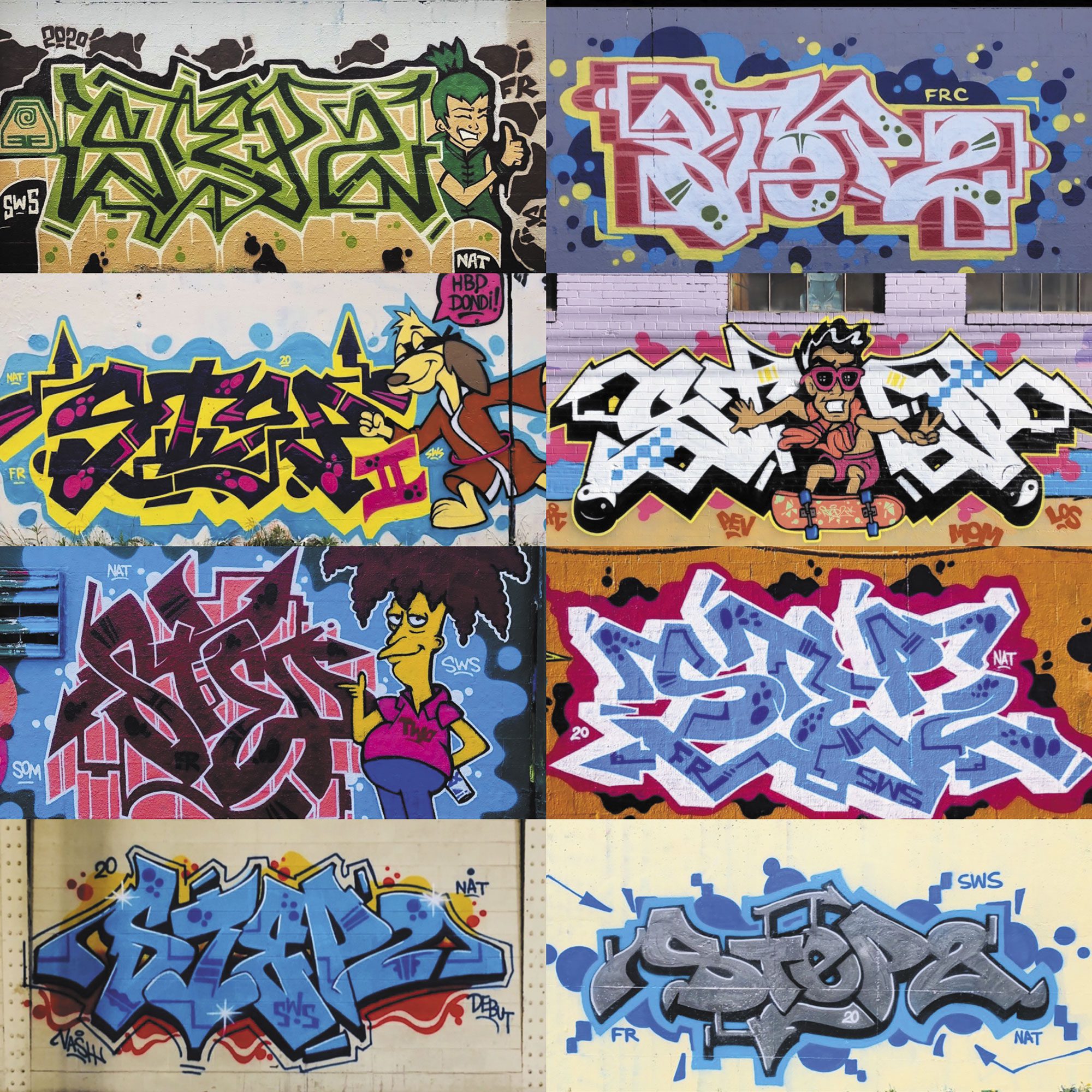
How would you define writing as an art form?
Graffiti can be nasty and I hate to say it but it is an art form about saying “Fuck you.” No matter what is going on in the world it is a way of saying you are here. You can’t oppress me. If you zoom out on that writer who just got caught tagging on that wall and you look at all the corruption and all the real fucking evil shit that is going on, you understand it’s a thin line. There were times where I was just tagging on shit because I was telling the world you know, “Fuck you,” because I didn’t like that there is corruption and evil shit. And sometimes that’s how you express it. Is it right? No. Is it right to kill people on the other side of the globe? No. Which one does more harm?
That’s awesome. You’ve been a part of the Denver writing scene for a long time now.
I’ve never claimed to be king of this town but I have been a participant. I’ve definitely been involved in a lot of things that have gone on with Denver graffiti since 1990. I used to be a part of some of the best crews. In the early ‘90s I was in RTD, they’re one of the best crews in Denver — they’re worldwide. And also SWS, they’re one of the best and oldest local Denver crews. And you know, we’re part of the second generation when it comes to Denver and that says a lot, because first generation was from the mid to late ‘80s, but the second generation really stepped it up. We took a lot of chances, we went a lot harder, and we really set the tone for what is here today. I think the evolution would have happed naturally anyway, but we were a part of that, and others were too. That’s what I wish people today would respect.
What wisdom would you bring to the new school?
Go through names until you find the one you really want and then go out there and write and tag and develop your tag and just keep it real. Period. And be positive. Because you don’t know where this shit is going to go. Some people end up like Shepard Fairey and some people end up in jail. It’s one of those gateway things. It’s not only a gateway to doing galleries, it’s also a gateway into doing B&E’s (laughs). You know, and that’s the thing, choose your path, choose the right path, whatever that is. Because really, half my friends went that way and half my friends went the other. That’s how it goes.
Anything else you’d like to mention?
The Denver scene is dope. It has roots going back to the ‘80s. We have native kings from the ‘90s who paved the way, but also influences from legit writers who moved here from East to West. A lot of older guys are still doing it, but there’s a new generation that’s doing things bigger and better — and really taking it to another level. Thanks for having me!
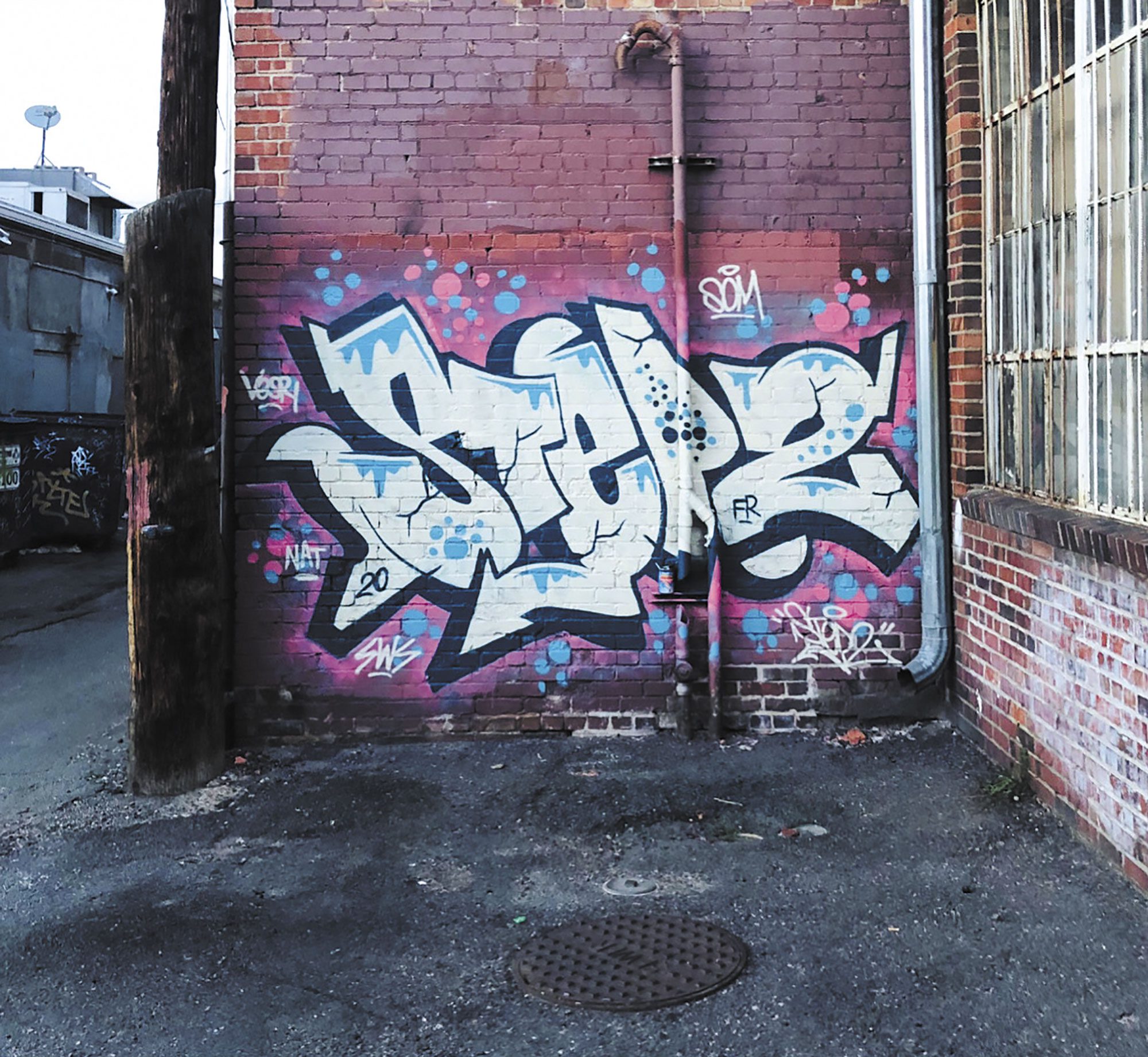
Snag a copy of Issue 002 to read an early interview of Step2 in Men In Burka, or head to our Explore section to read more interviews by Jonny Destefano.
